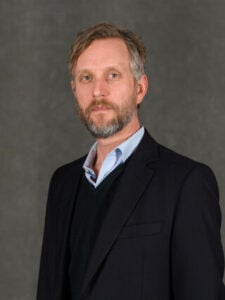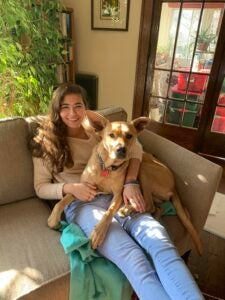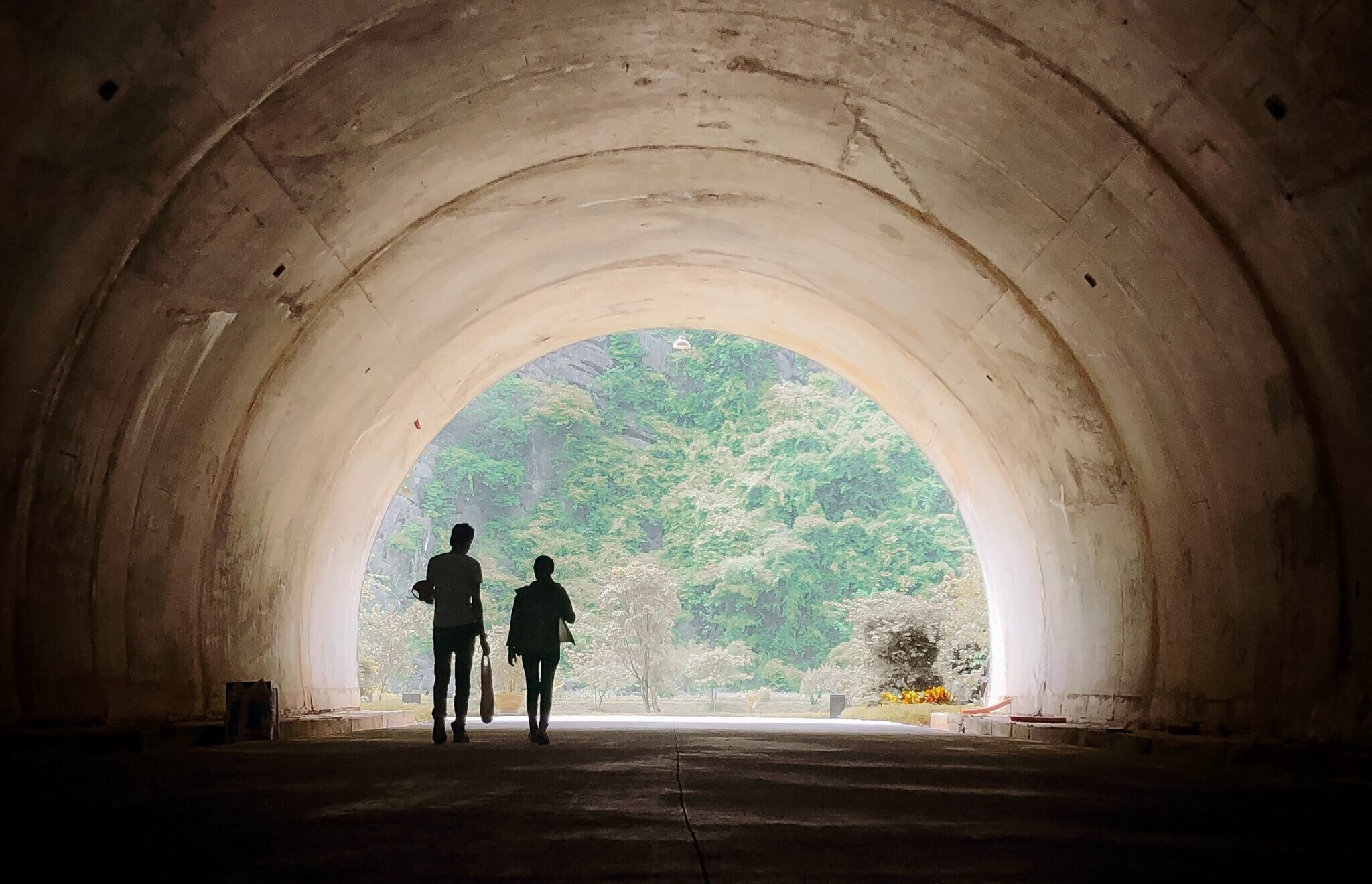Ignatian Seminar Examines Effects of Sound on Society and Race, Builds Community from Afar
During a time when many students are isolated, Ben Harbert, a professor in the Department of Performing Arts, has worked to create unity and community in his Ignatian Seminar by studying one of our often overlooked senses: sound.
“In society, we preserve so many things that are meaningful to us, but we often do not preserve acoustic spaces despite our deep connections to it,” says Harbert. “When you hear a video game noise or “mind the gap” for example, it takes you back to a time, a place, or a memory. My students are working on preserving their own spaces through sound, so that they can learn about each other virtually, and so when they do return to campus they can bring a little bit of home with them.”
Changing the Soundscape

Professor Ben Harbert
This semester is the third time that Harbert has taught Sound Listening, a first-year seminar, that is an introduction to sound studies. Typically, students start the course by exploring the physical makeup of sound by learning about frequency, wavelength, and reflections. The class then examines the soundscape and how sounds interrelate before studying acoustemology, or how culture and ideology affect how we listen.
Harbert says that this is a step-by-step course that not only teaches the basics of sound mechanics but provides another lens through which to study citizenship and understand our world.
“One of the ways that this class has been meaningful for first years in the past specifically is that we start the investigation on campus,” he explains. “Normally we go on sound walks — we walk on the bricks in Red Square, listen to the echoes off of Healy, observe how the air conditioners resonate in Reiss, or close our eyes and listen to the airplanes flying overhead. Through this class, students get a really intimate soundscape of Georgetown, and they use all of the vocabulary from class to articulate how their old home sounded different from their new home.”
Since students could not be on campus this semester, Harbert decided to bring the soundscape to them.
With the help of the College Dean’s Office, Harbert purchased recorders with immersive microphones that he shipped to each student so that they could document the noises of their unique home environments. Each student chose different sounds from their home to record, like the door opening in the shed behind their house, or the reverberations of the tile in their bathroom.
Sam Tollison (C’24) was inspired by a passage from The Sound Book: The Science of the Sonic Wonders of the World by Trevor Cox, in which the author played with the recordings of sounds against a concrete wall. Tollison replicated this in a concrete tunnel in his hometown of Fort Collins, Colorado and was able to highlight the reverberation created by an individual running through water.
Though the main purpose of this exercise was for the students to hear each other’s soundscapes, Harbert said that an unintended consequence is that the class was able to connect with Sam and each other through their voice recordings.
“Technology like Zoom that we use to keep in touch in this virtual environment mangles your voice in subtle ways, but those subtle ways, like minor voice inflections or pauses, are the ways that we listen to each other, get to know each other and feel comfort,” Harbert says. “We all realized that when we turned off our videos and just listened to each other’s work and voice that we felt a deeper sense of community and camaraderie from afar. It has really expanded our humanity.”
Sound and Society
As a continuation of their latest project, students in Sound Listening are using their hometown soundscapes to examine different large-scale topics in the world, such as how biases affect our perception of neighborhoods, the loss of natural sounds in state parks and how memory affects our listening. More specifically they are grappling with sound as it relates to race and racism in the United States.

Maya Cassady (C’23)
Maya Cassady (C’23), who took Sound Listening in her first year and is now a teaching assistant for the course, says that “because we can’t simply turn off our listening in the same way that we can close our eyes or plug our noses, sounds are inherently political in their meaning.”
“What our psychological filter deems as unnecessary or unimportant, we filter out from the soundscape, creating a hierarchy of sound all around us,” Cassady continues. “On a larger scale, we examine in the class who gets to occupy public spaces. What are “good” sounds? What is noise? How do our identities, experiences, and social privileges contribute to our censoring of the soundscape.”
The real-world applications of this course have helped first-year students like Mioko Ueshima (C’24), a musician in Sound Listening, appreciate sounds beyond the scope of the definition of music and more deeply understand the world around him through a different perspective.
“Random and natural sounds can be appreciated and be equally as beautiful as a music piece that has been deliberately organized,” Ueshima continues. “Although I was skeptical about how we were going to learn about sound when all classes are remote, Professor Harbert has really adapted the learning to a virtual environment.”
